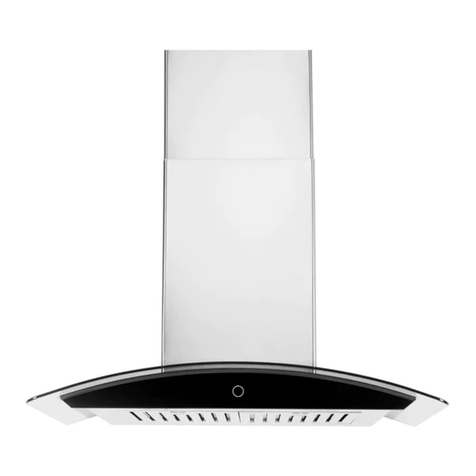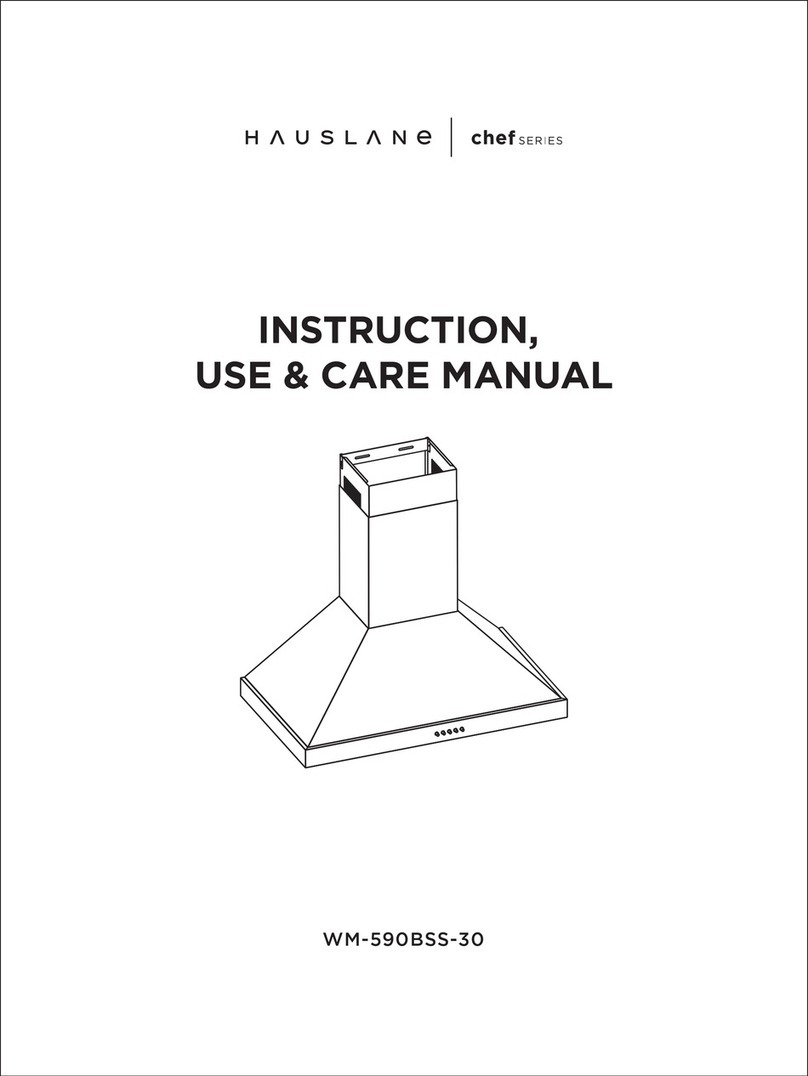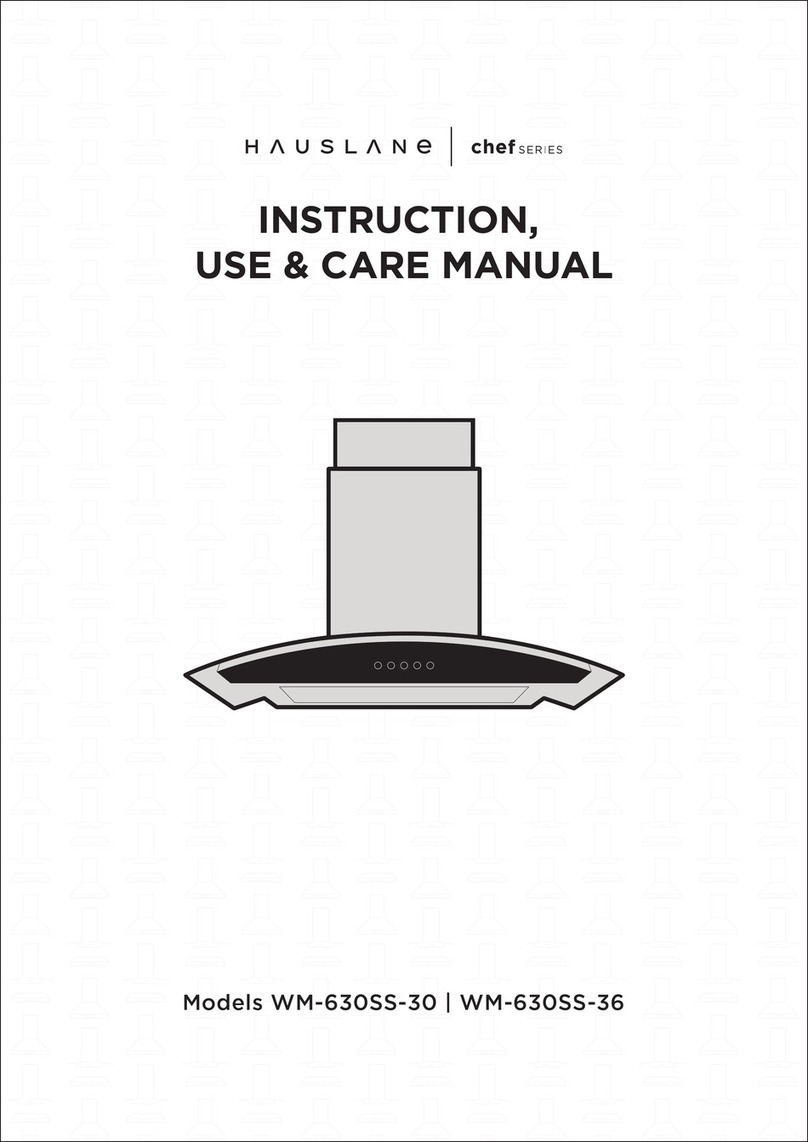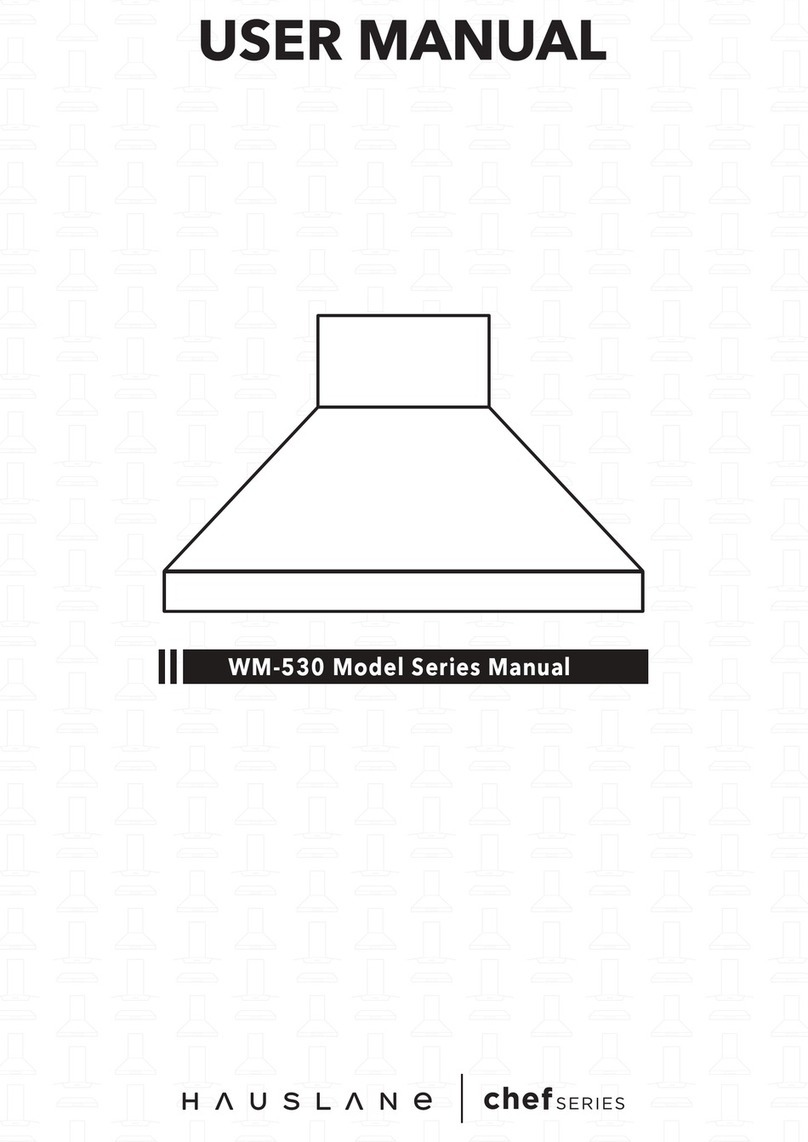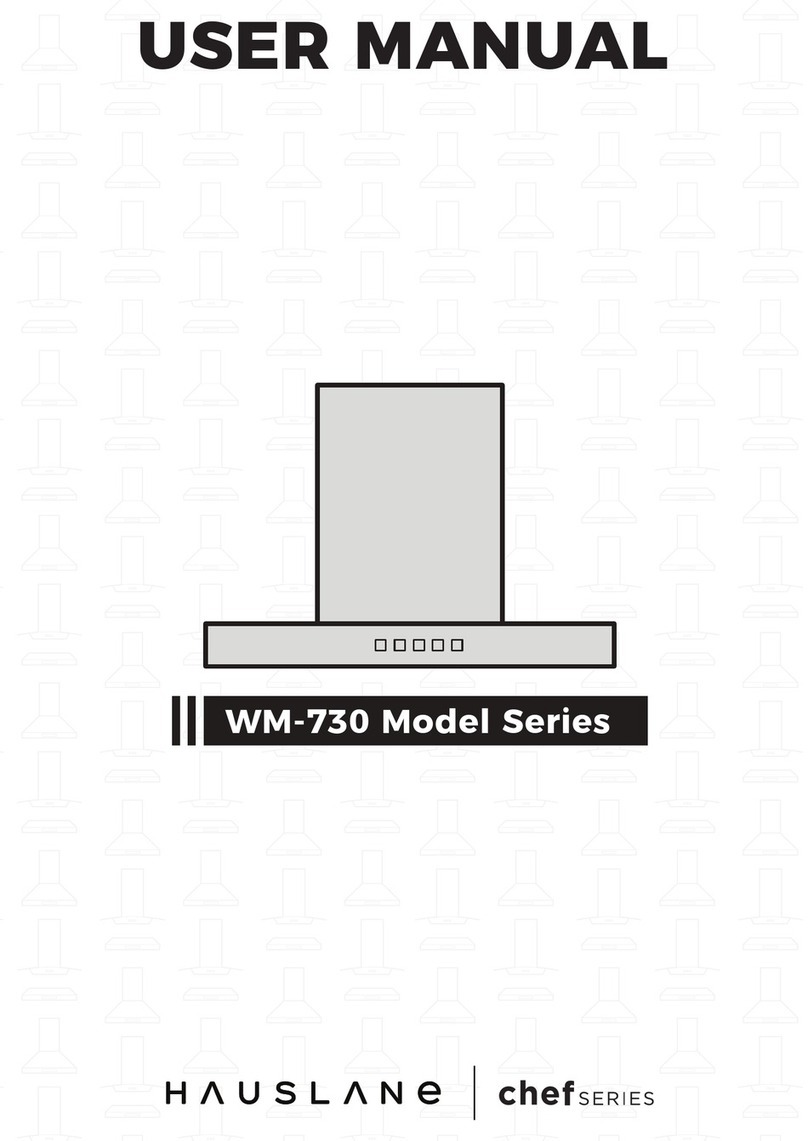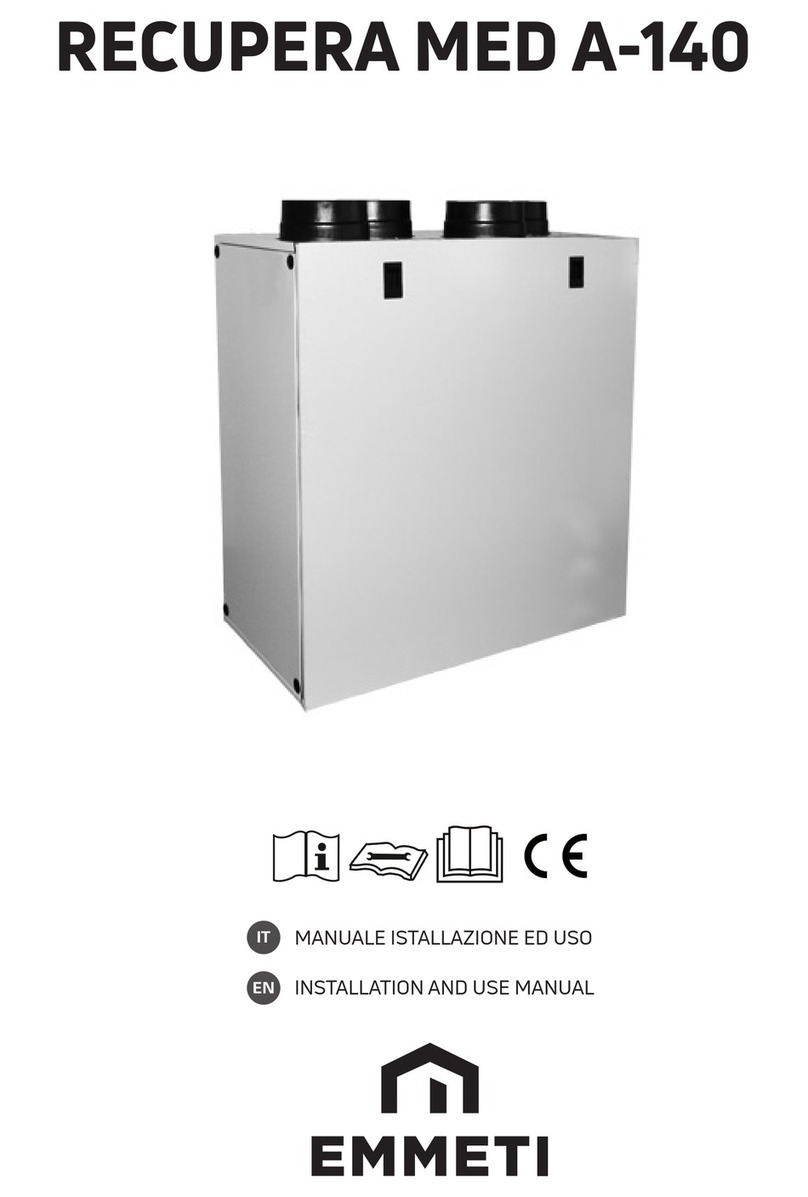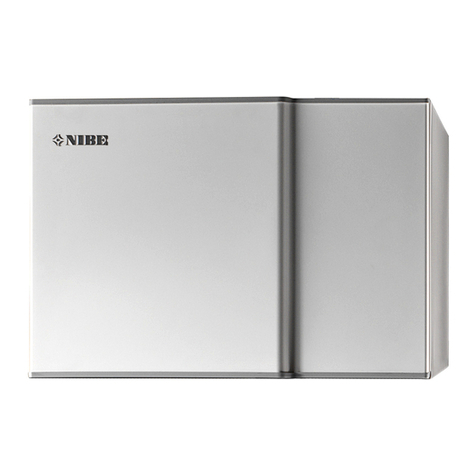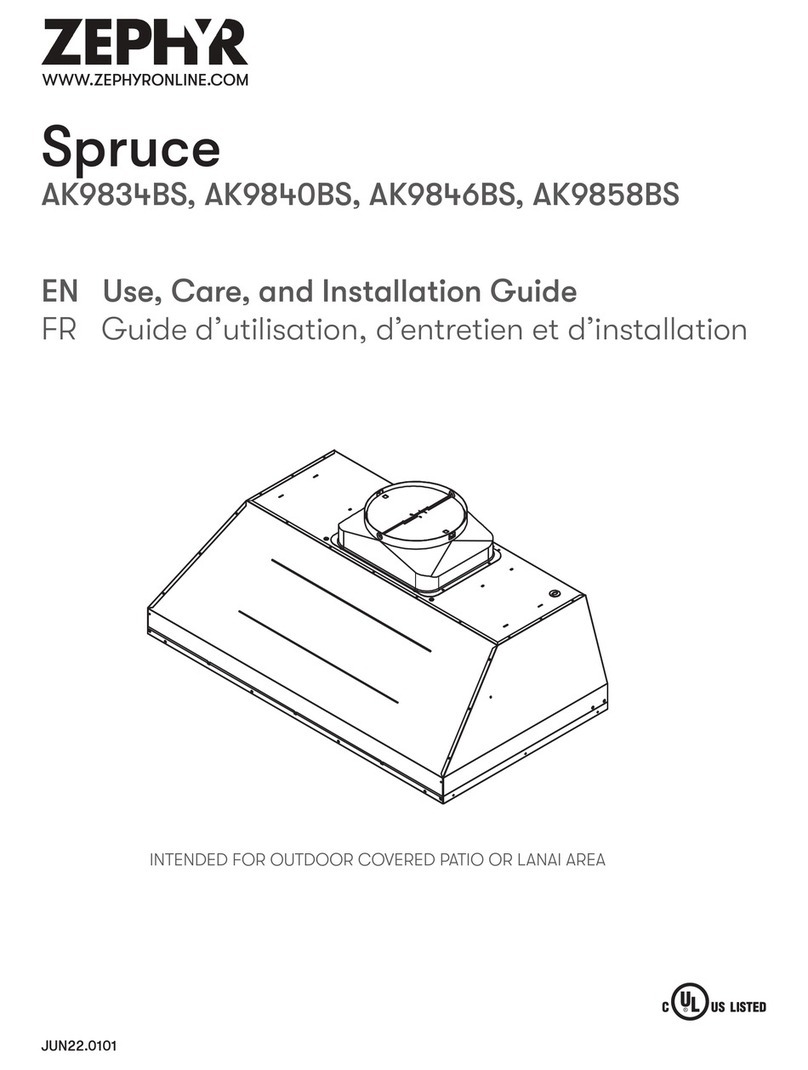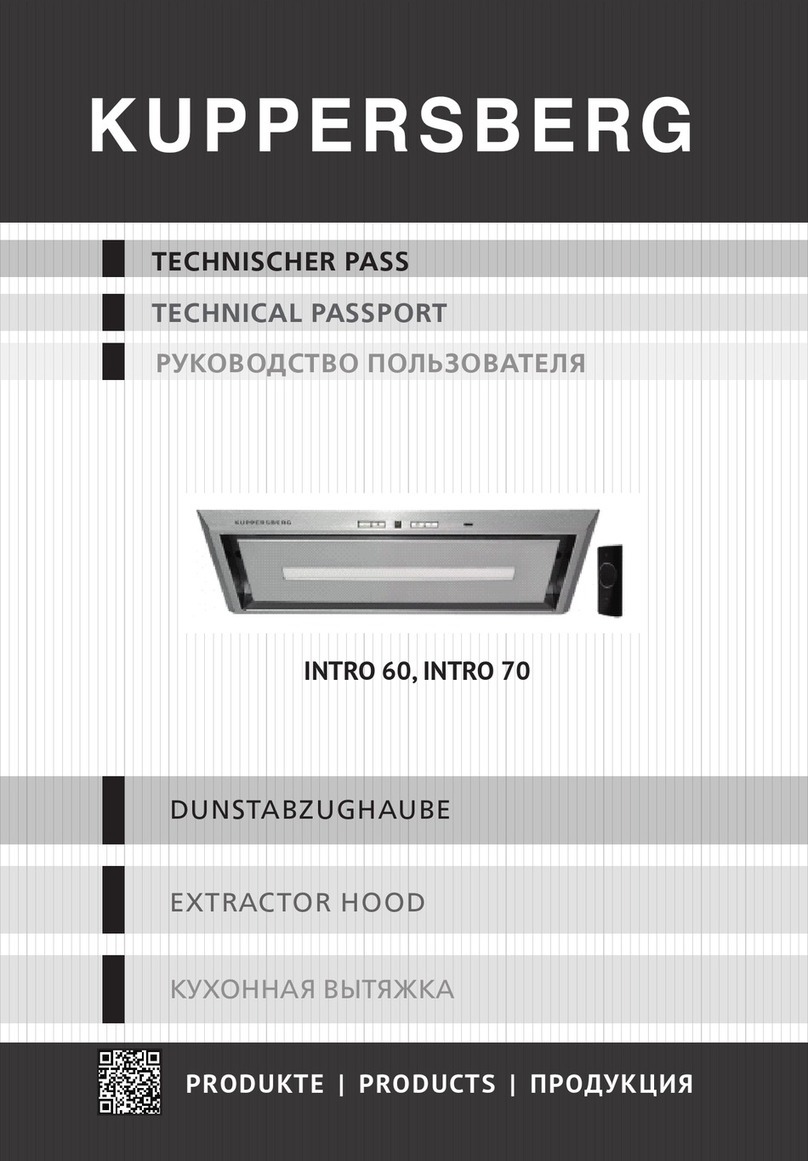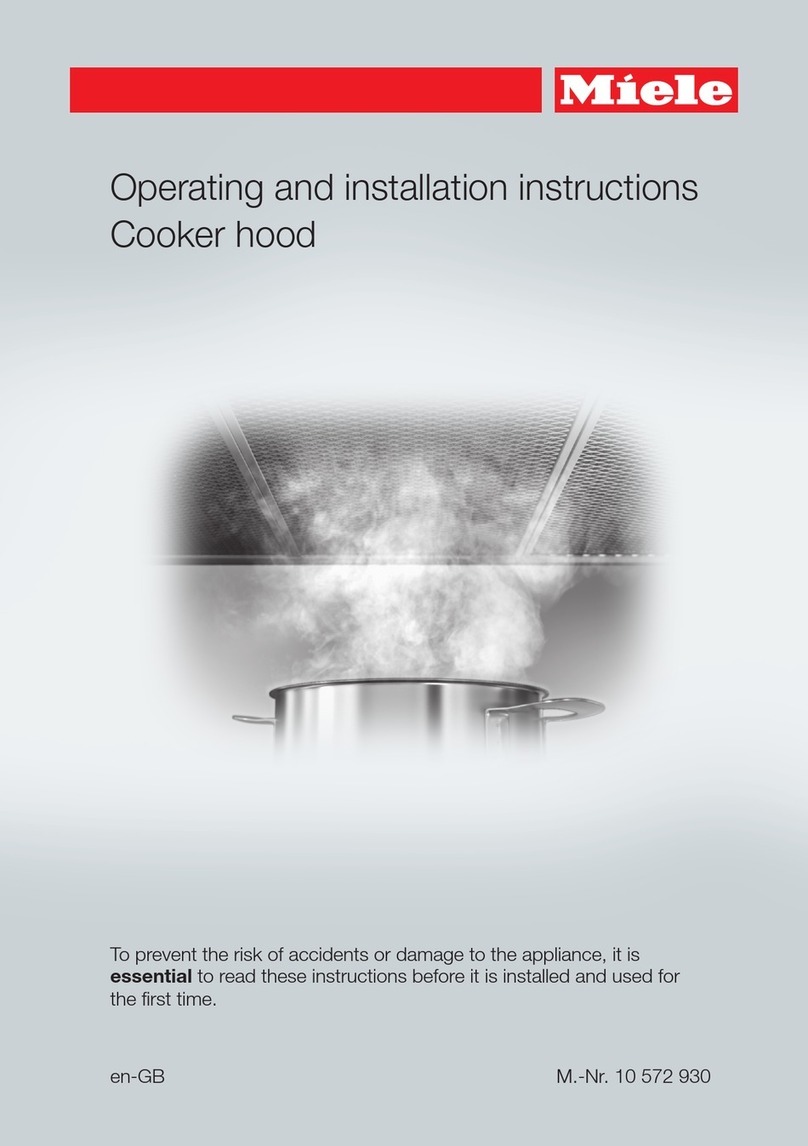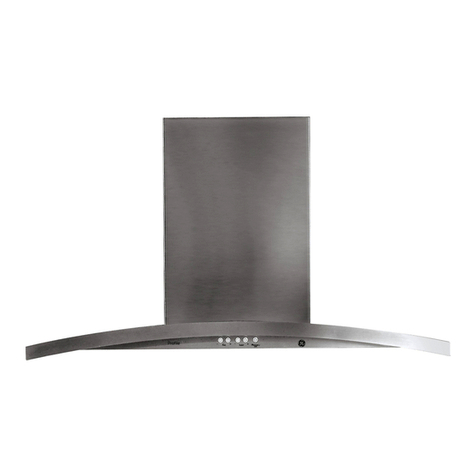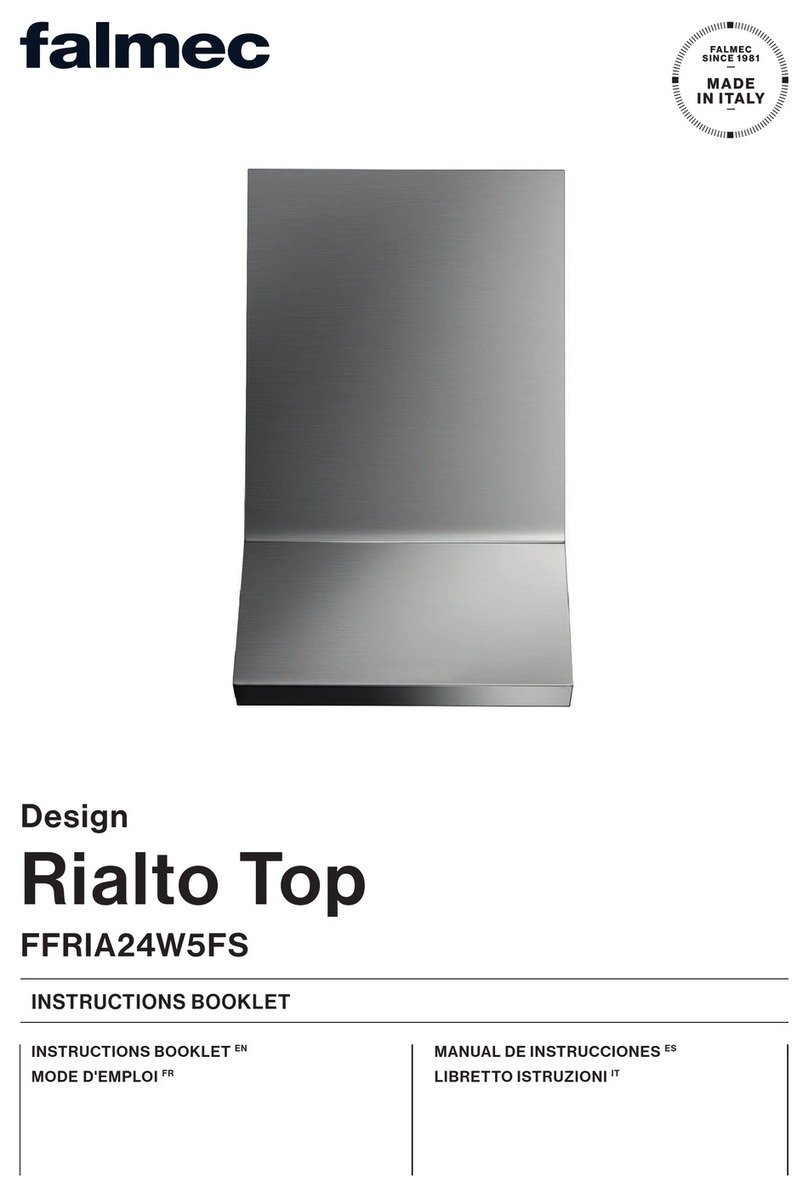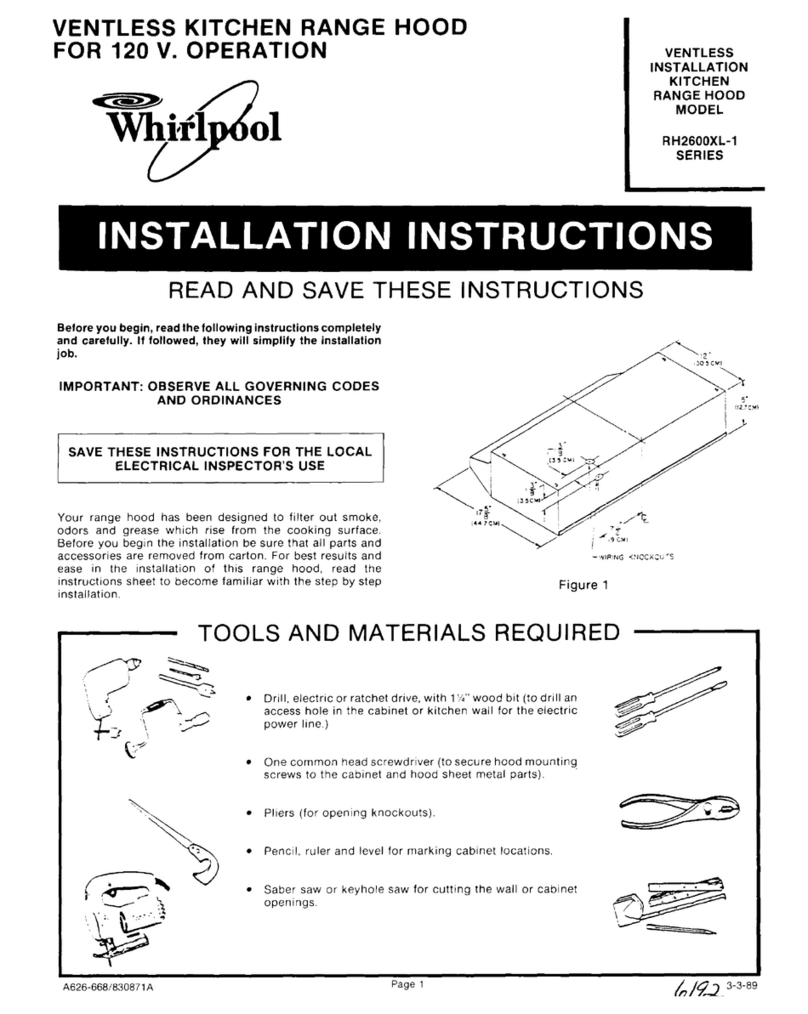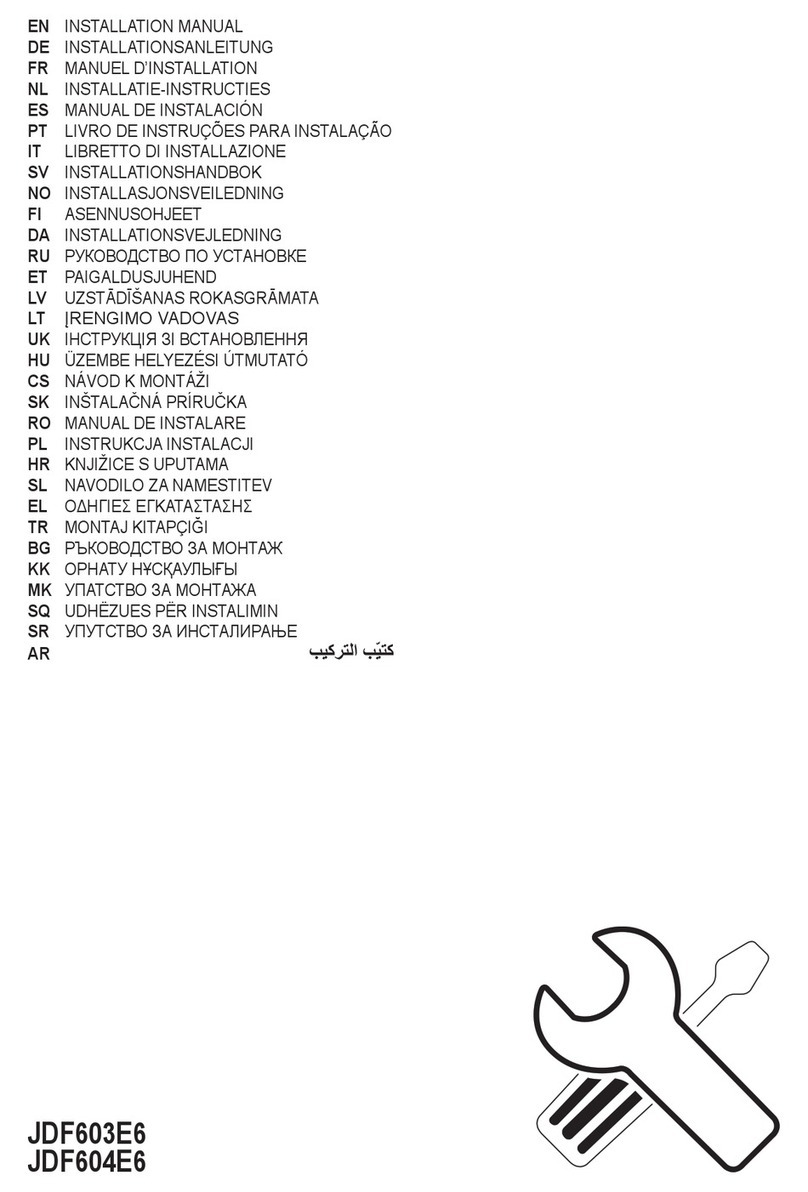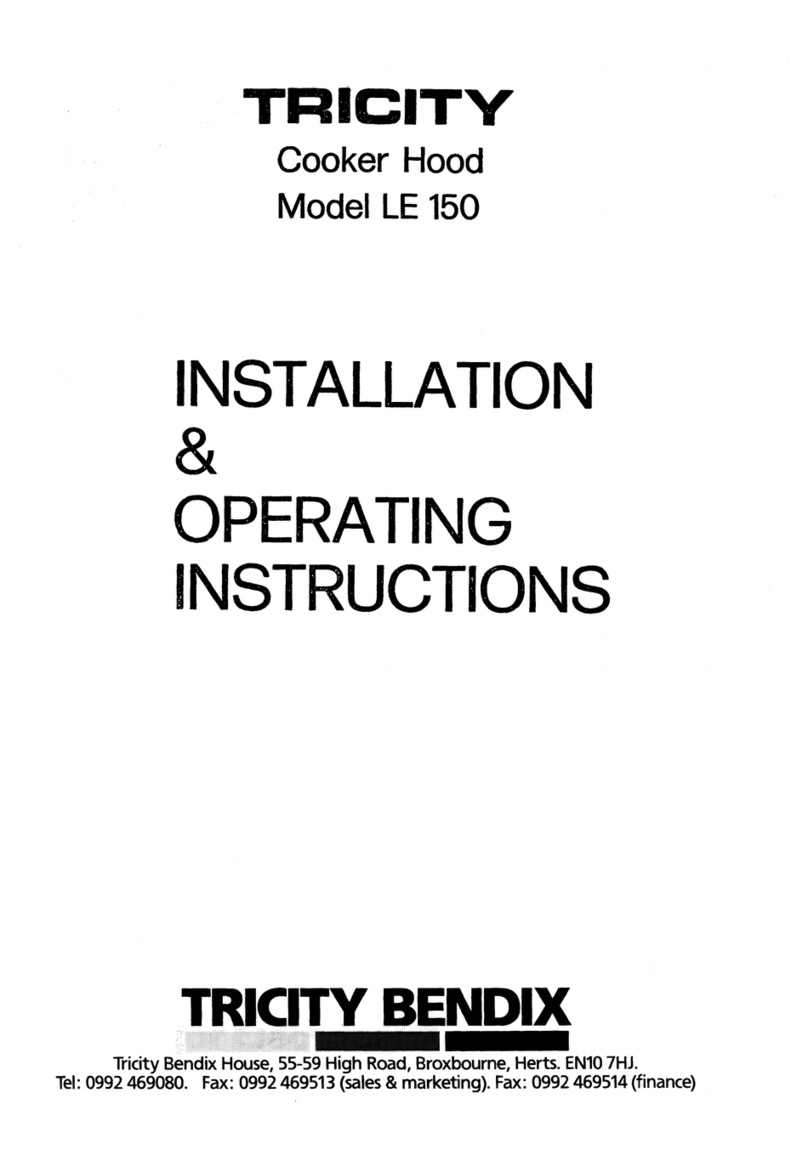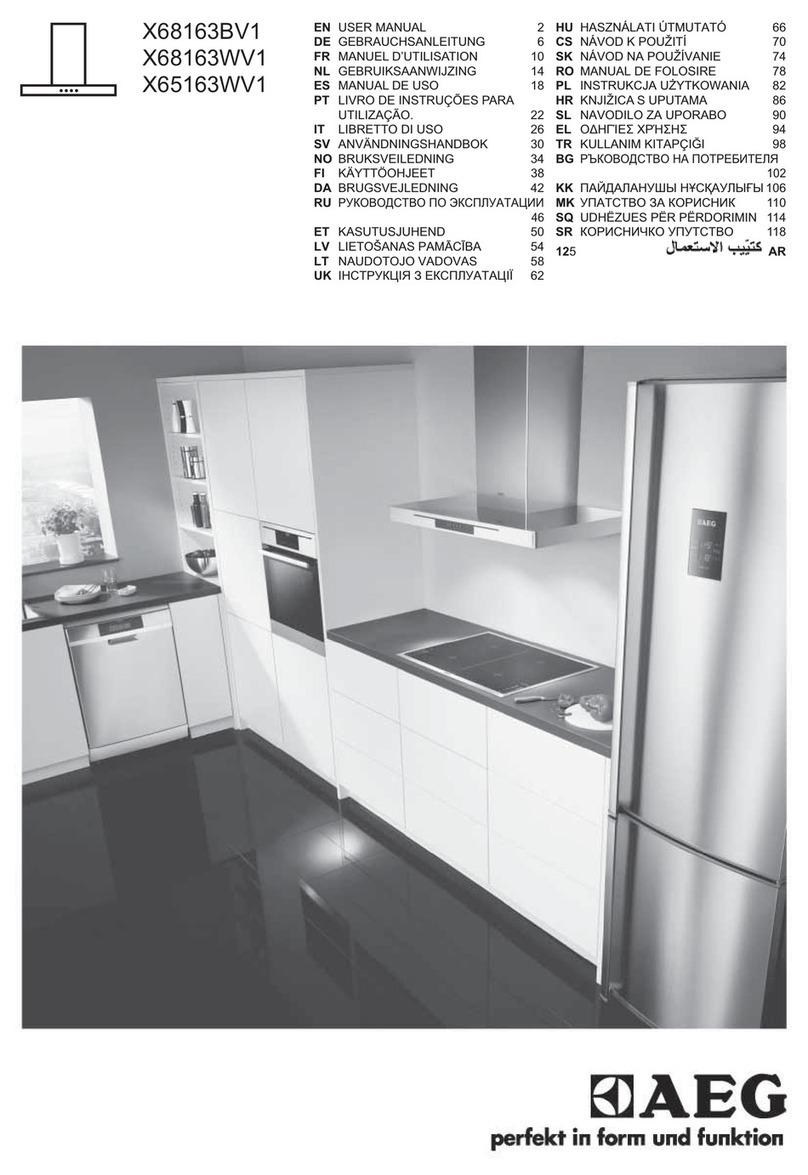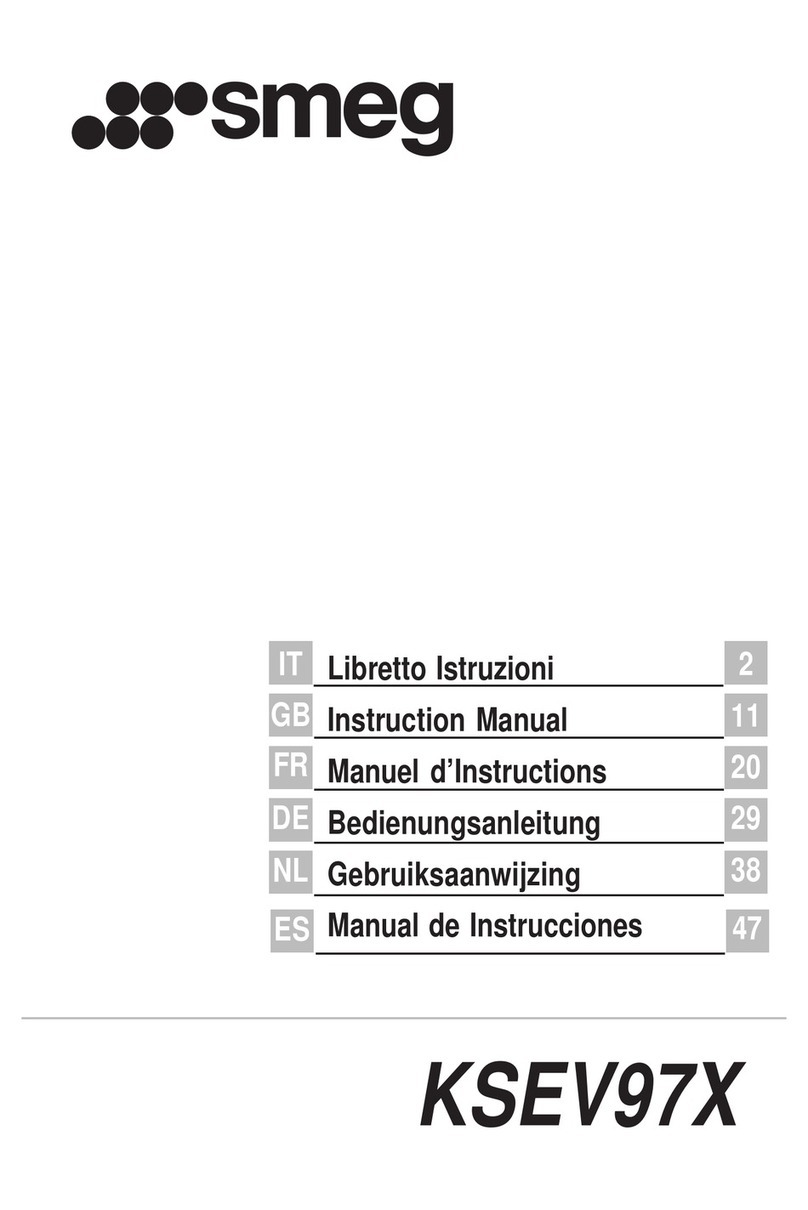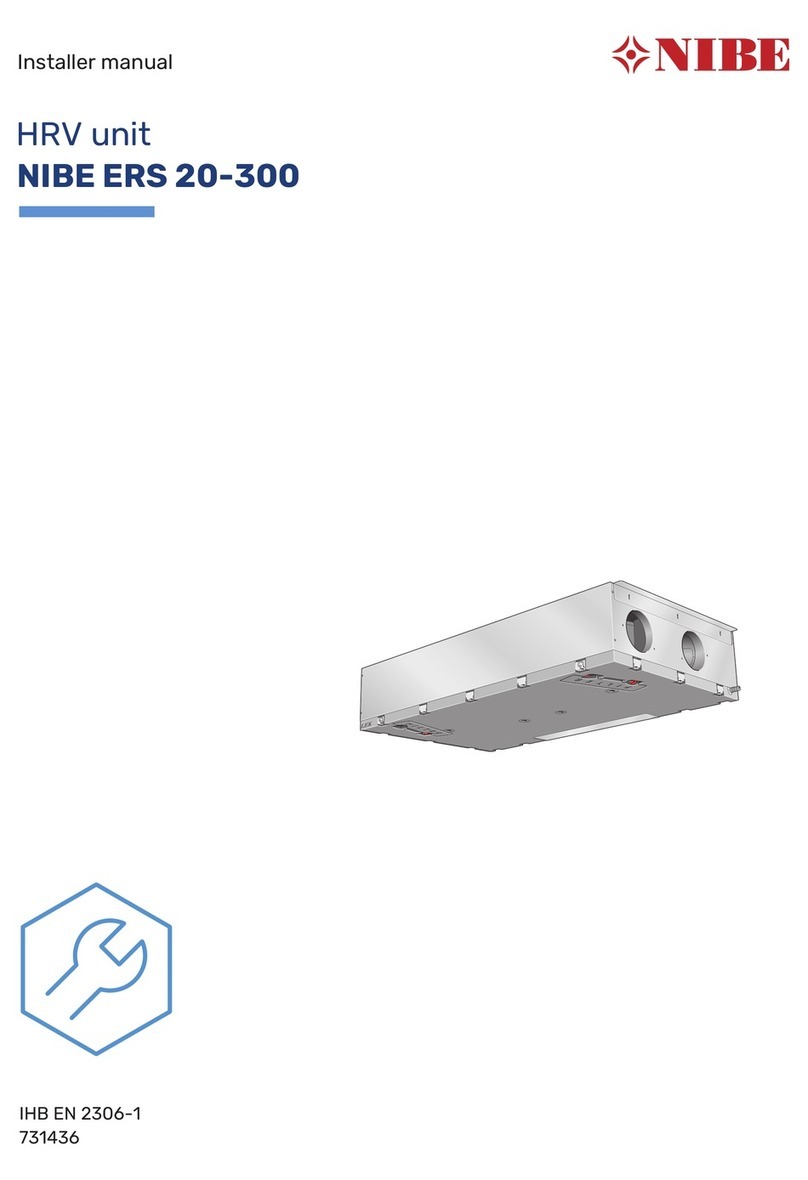
Safety Information
IN-R200 USER MANUAL 4
1.
2.
3.
For general ventilating use only. Do not use to exhaust
hazardous or explosive materials and vapors.
To avoid damage and noisy and/or unbalanced impellers,
keep drywall/construction dust, etc. off power unit.
Mount your range hood so that the bottom of the hood is
24" to 30" above the cooking surface. The minimum hood
distance above cooktop must not be less than 24"; any
installation less than 24" may cause overheating and cause
damage to the range hood, HAUSLANE does not warrant
this improper installation.
4.
5.
6.
7.
8.
Two to three installers are recommended because of
the larger size and weight of this hood.
To reduce the risk of fire and to properly exhaust air, be
sure to duct air outside. Do not exhaust air into spaces
within walls and ceiling or into attics, crawl space or
garages.
Because of the high exhausting capacity of this hood,
you should make sure enough air is entering the house
to replace exhausted air by opening a window close to
or in the kitchen.
Use with approved cord-connection kit only.
Please read product specification label on range hood
for further information and requirements.
CAUTION
Before installing your range hood, read the entire instruction
manual. Installers, leave this manual with the homeowner.
Use this range hood only in the manner intended by the
manufacturer. If you have the questions, contact Chef Kitch
Before servicing or cleaning, switch power off at service
panel and lock service panel to prevent power from being
switched on accidentally. When the service disconnecting
means cannot be locked, securely fasten a prominent
warning device, such as a tag, to the service panel.
Installation work and electrical wiring must be done by
qualified personnel in accordance with all applicable codes
and standards, including fire-rated construction codes and
standards.
Sufficient air is needed for proper combustion and exhaust-
ing of gases through the flue (chimney) of fuel-burning
equipment to prevent back drafting. Follow the heating
equipment manufacturer's guidelines and safety standards
such as those published by the National Fire Protection
Association (NFPA), and the American Society for Heating,
Refrigeration and Air Conditioning Engineers (ASHRAE),
and the local code authorities.
When cutting or drilling into wall or ceiling, do not damage
electrical wiring and other hidden utilities.
Ducted fans must always be vented to the outdoors.
Do not use this unit with any solid-state speed control
device.
To reduce the risk of fire, use only steel ductwork.
1.
2.
3.
4.
5.
6.
7.
8.
This unit must be grounded.9.
1.
2.
3.
4.
Never leave surface units unattended at high settings.
Boil overs cause smoking and greasy spillovers that
may ignite. Heat oils slowly on low or medium settings.
Always turn hood ON when cooking at high heat or
when cooking flaming foods.
Clean ventilating fans frequently. Grease should not be
allowed to accumulate on fan or filter.
Use proper pan size. Always use cookware appropriate
for the size of the surface element.
WARNING
SUITABLE FOR USE IN HOUSEHOLD COOKING AREA
ONLY. TO REDUCE THE RISK OF FIRE, ELECTRICAL
SHOCK, OR INJURY, OBSERVE THE FOLLOWING:
TO REDUCE THE RISK OF A RANGE TOP GREASE
FIRE:
2.
3.
4.
NEVER PICK UP A FLAMING PAN as you may be
burned.
DO NOT USE WATER, including wet dishcloths or
towels. This could cause a violent steam explosion.
Use an extinguisher ONLY if:
A. You own a Class ABC extinguisher and you know
how to operate it.
B. The fire is small and contained.
C. The fire department has been called.
C. The fire department has been called.
D. You can fight the fire with your back to an exit.
*Based on "Kitchen Fire Safety Tips" published by
NFPA.
WARNING
TO REDUCE THE RISK OF INJURY TO PERSONS IN THE
EVENT OF A RANGE TOP GREASE FIRE, OBSERVE THE
FOLLOWING*:
1. SMOTHER FLAMES with a close-fitting lid, cookie sheet
or metal tray, then turn off the burner. BE CAREFUL TO
PREVENT BURNS. IF THE FLAMES DO NOT GO OUT
IMMEDIATELY, EVACUATE AND CALL THE FIRE
DEPARTMENT.
